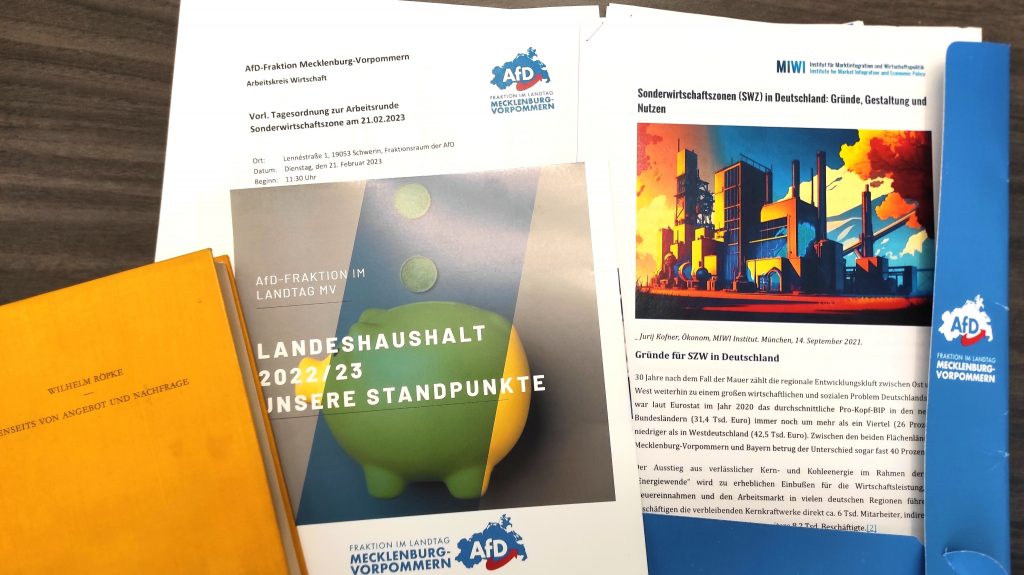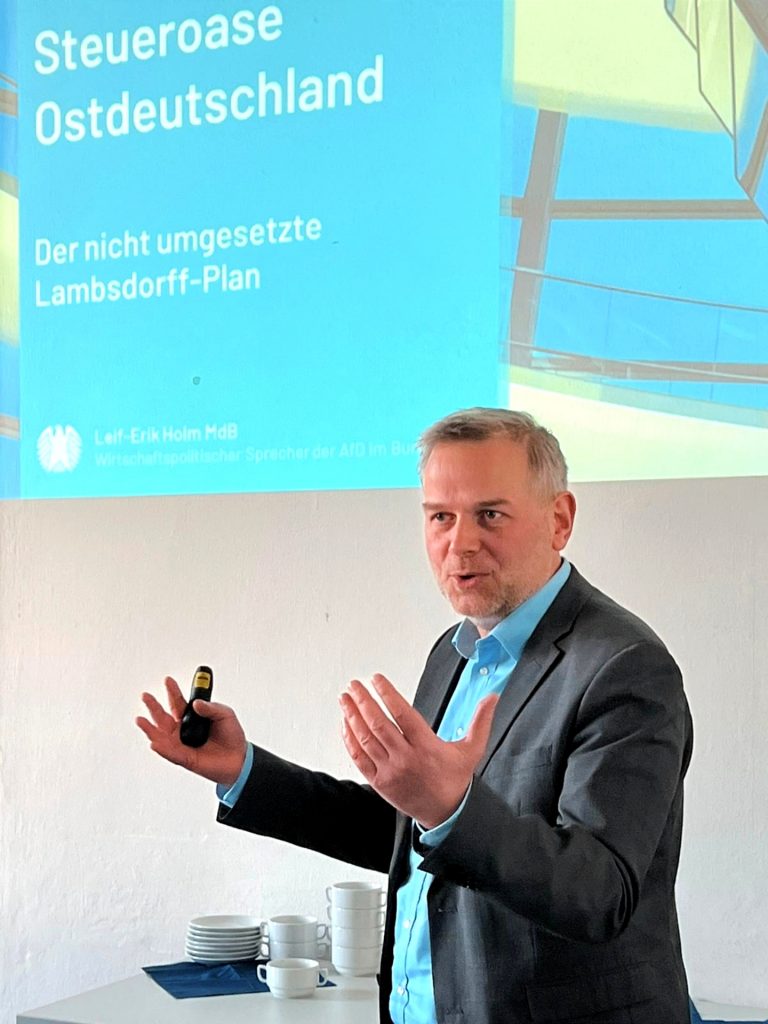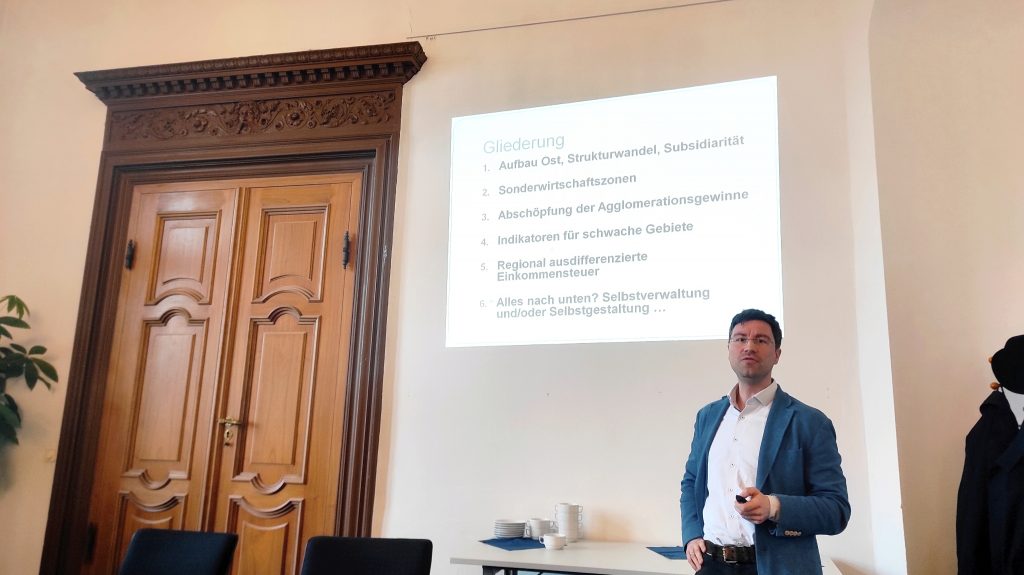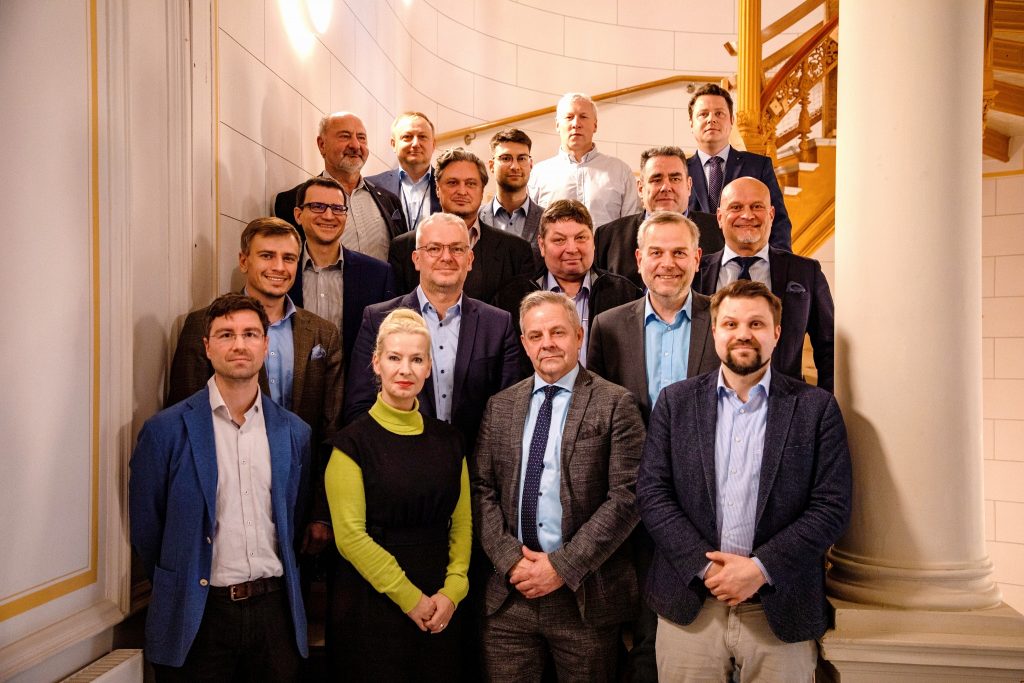On February 21, 2023, representatives of the AfD parliamentary groups from the federal and state governments met in Schwerin Castle in Mecklenburg-Western Pomerania to discuss the concept of special economic zones. MIWI economist Yuri Kofner took part in the working group.
The financial and economic policy spokespersons of the AfD parliamentary groups support the establishment of special economic zones to attract investments, create jobs and strengthen structurally dependent regions in Germany. The participants discussed three main possible alternatives: the Swiss model (supporting municipalities to lower their local corporate tax rate), the Italian model (tax credits for private investments) and the Polish model (no territorial restriction, but tax breaks in all Polish regions depending on employment rate).
Other measures that could be implemented in German special economic zones were also discussed: demographic impulses, such as tax exemptions for families with children; tax relief for the purchase of real estate; central contact points for companies, so-called “one-stop shops”; authorizations that are granted automatically if the authority does not decide within a shortened period; improved infrastructure (transport, digital, education, recreation, etc.) and other measures.
It should be noted that the participants only see special economic zones as an additional concept, since the AfD wants to strengthen federalism and the principle of subsidiarity overall in order to give states and municipalities more tax autonomy for tax competition. At the same time, the party wants to drastically simplify the German tax system to three or four main taxes. For example: a general (negative) income tax (max. 25 percent) for all types of income; a VAT (max. 15 percent, and 0 percent, e.g. for basic foodstuffs and medicines); and a nature tax (to preserve forests and natural areas).
In his lecture, “Upswing East! But how?”, the business journalist Felix Menzel, Research Dresden, dealt with the concept of agglomeration gains of the Oxford economist Paul Collier and suggested granting tax cuts to citizens in remote rural areas.
Analysis on the topic: Kofner Y. (2021). Special economic zones (SEZ) in Germany: reasons, design and benefits. MIWI Institute.






